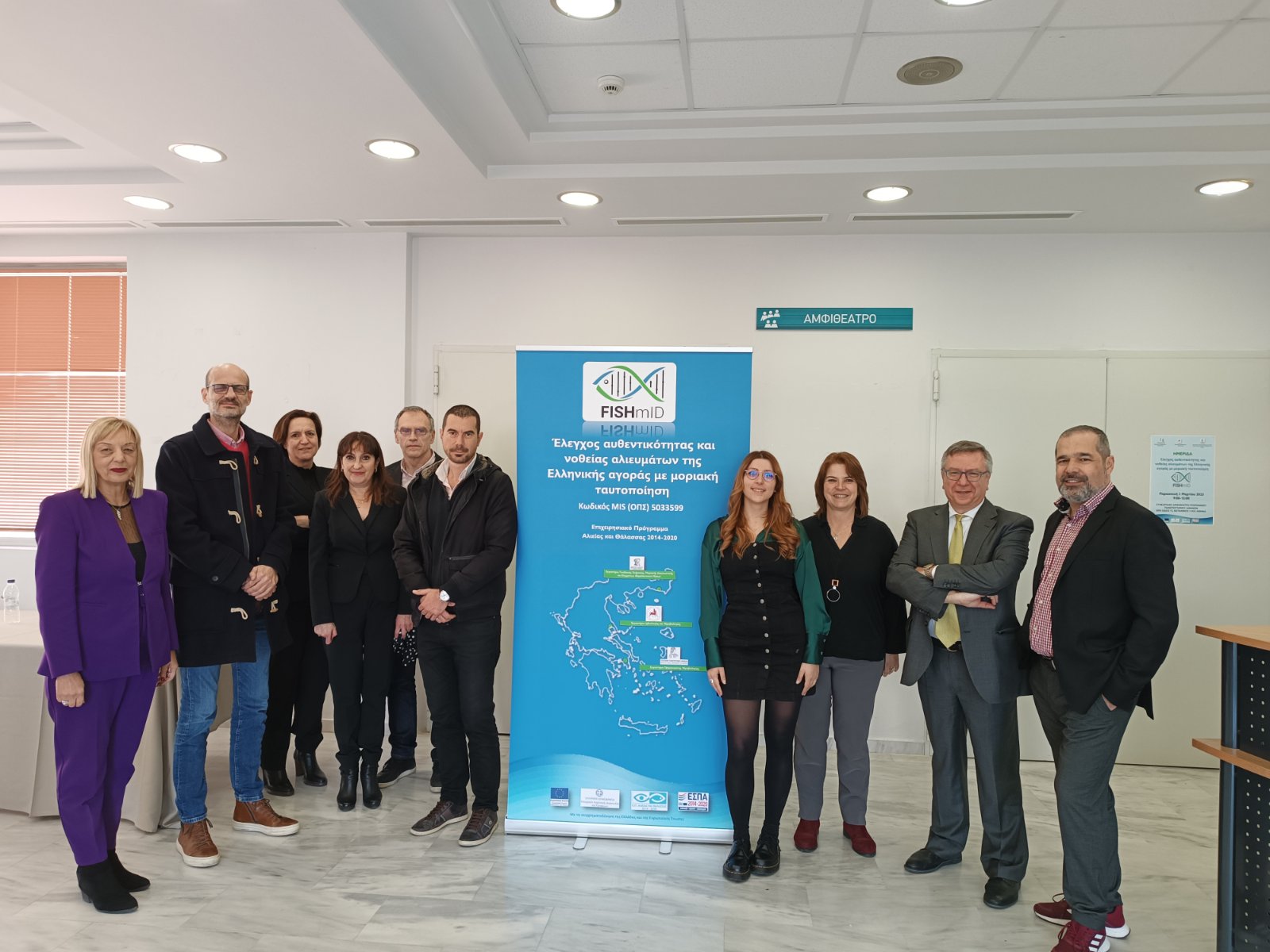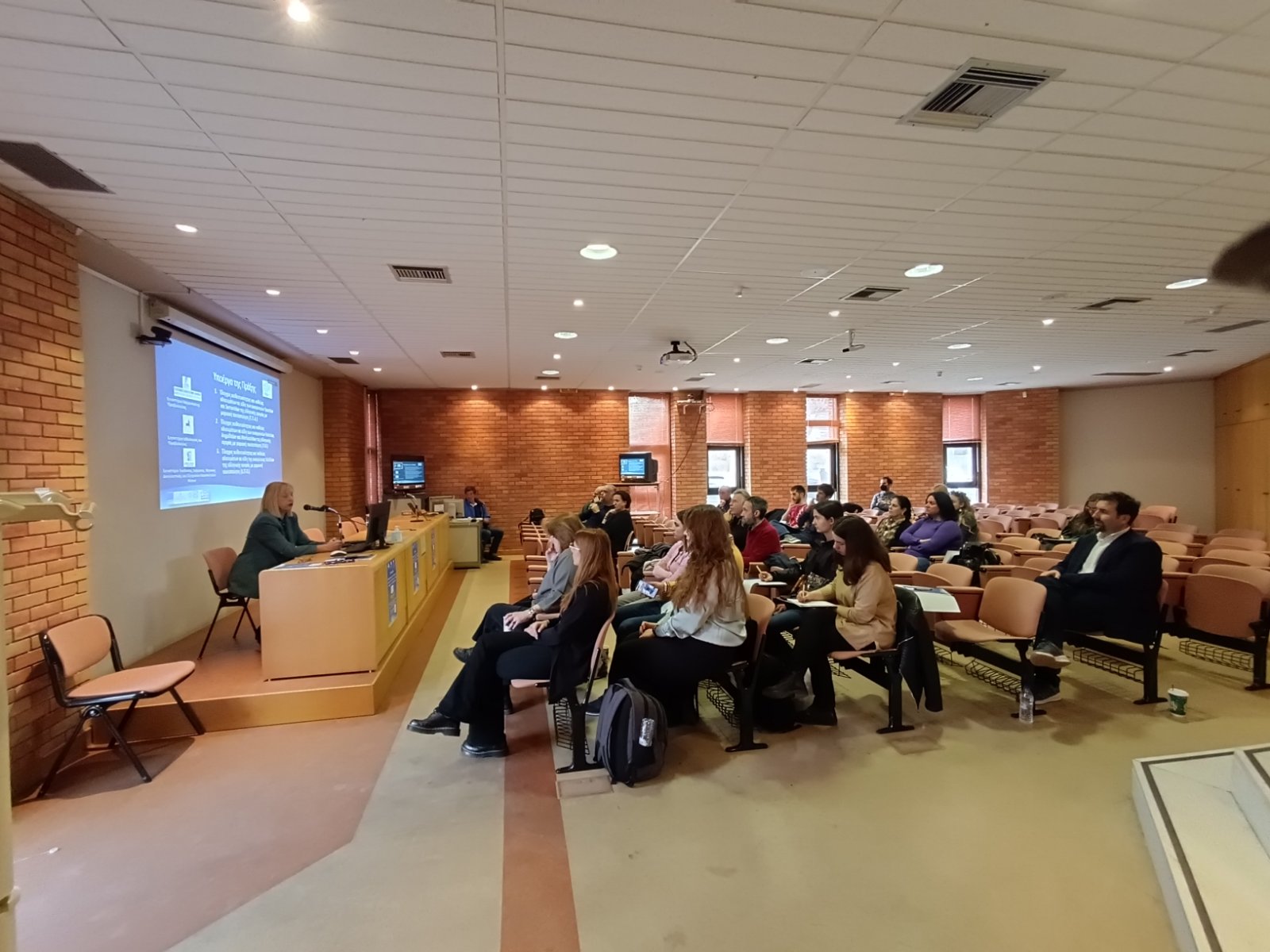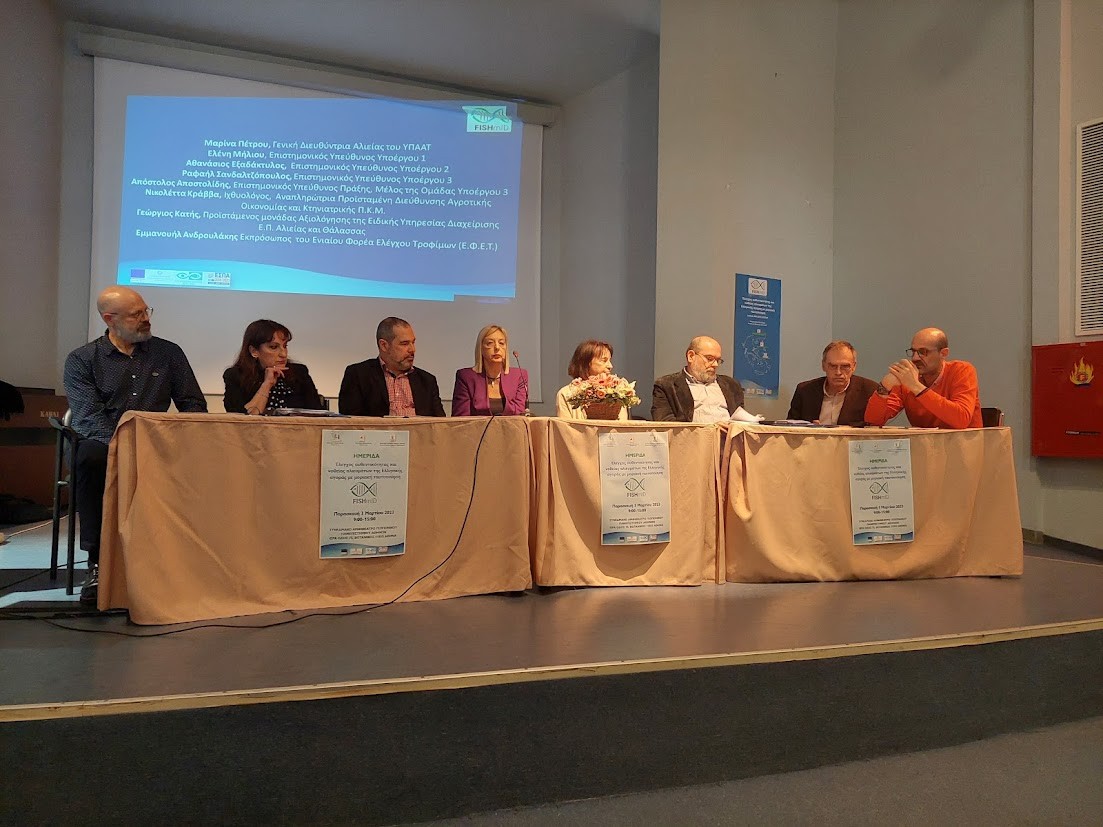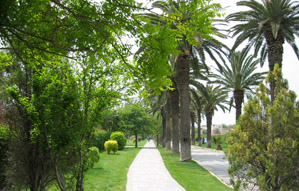A Workshop and Info Day upon Authenticity and Fish Fraud within the Greek Market held at the Agricultural University of Athens
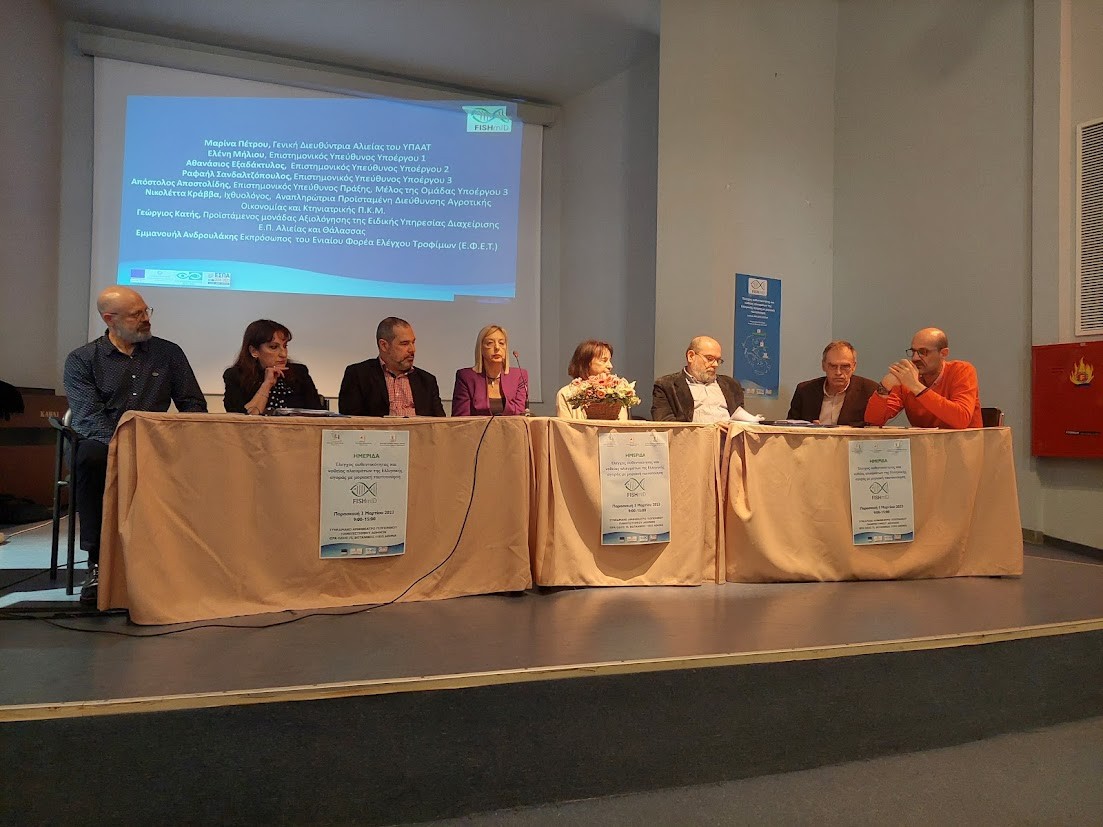
A Workshop and Info Day upon Authenticity and Fish Fraud within the Greek Market held at the Agricultural University of Athens.
On Thursday, March 2 2023, a seminar took place at the Library Conference Room of the Agricultural University of Athens, within the framework of the Action, entitled “MOLECULAR IDENTIFICATION OF FISH AUTHENTICITY AND ADULTΕRATION IN GREEK MARKET – FISHmID”, which is funded by the Operational Program: “Fisheries and Maritime 2014-2020”, Measure 3.1.1, which is in turn funded by the European Maritime and Fisheries Fund.
The Agricultural University of Athens, the Aristotle University of Thessaloniki, Democritus University of Thrace and the University of Thessaly have joined forces, with the aim of making the participants aware of the implementation of advanced and innovative techniques by means of molecular markers applied for the identification of fish species widely traded in the Greek market, such as the common seabream (Pagrus pagrus), the common dentex (Dentex dentex), the grouper (Epinephelus aenaus), the dusky grouper (Ε. marginatus), the common sole (Solea solea), Εel (Anguilla anguilla), the European hake (Merluccius merluccius), the striped red mullet (Mullus surmuletus) and the red mullet (M. barbatus).
On the very next day, Friday March 3 2023 a workshop was held at the Conference Center of the Agricultural University of Athens with reference to the results of the Project ““Molecular Identification of Fish Authenticity and Adulteration in Greek Market – FISHmID”. The Vice Rector for Research, Finance and Development of the Agricultural University of Athens, Mr Thomas Bartzanas, Associate Professor, sent a greeting to the audience, while the Vice Rector for the European University, Internationalization and Student Affairs, Ms. Helen Miliou, Professor of the Agricultural University of Athens being the Coordinator of Project FISHmID as well, has elaborated on the goals and the objective of this Project. Afterwards, the Scientific Responsible of the Project, Mr Apostolos Apostolidis, Professor at the Aristotle University of Thessaloniki, has analysed the scientific approach and methodology used, too.
A great number of scientists and representatives of public authorities have been participated, like the General Manager of the Directorate General of Sustainable Fisheries Ms. Marina Petrou, the Director of the Fraudulent Practices and Fraud Department of the Directorate of Consumer Protection of the Hellenic Food Authority (EFET) Mr. Emmanouil Androulakis, the Ichthyologist Ms. Nikoletta Kravva from the Steering Board of the Geotechnical Chamber of Greece (GEOTEE), the Head of Unit B’ of the Special Managing Authority for Fisheries, Aquaculture and Maritime Mr George Katis, the employee of Unit D’ of the Special Managing Authority for Fisheries, Aquaculture and Maritime Mr. Efstathios Sourais, the Head of the Directorate for Control of Fishing Activities & Fishery Products of the Directorate General of Sustainable Fisheries Dr. Georgios Fleris, the Head of the Department for Combating Illegal, Unreported and Unregulated Fishing of the Directorate for Control of Fishing Activities & Fishery Products of the Directorate General of Sustainable Fisheries Mr Vasilios Sygounas, the employee of the Department for Combating Illegal, Unreported and Unregulated Fishing of the Directorate for Control of Fishing Activities & Fishery Products of the Directorate General of Sustainable Fisheries Dr. Aristeidis Tsopelakos, Ms. Myrto Frentzou and Ms Maria Ladakou on behalf of the Central Markets and Fisheries Organisation S.A., as well as a large variety of other people.
At the end of the Conference, a Round Table was held, during which mention was made to the paramount need for the creation of a Structure providing the proper know-how, with the intention of supporting in the most efficient way all the controls carried out by the competent services, inasmuch putting forward the concern about the shortage of staff in various pertinent offices for the performance of thorough tests in the greek market. However, throughout the discussion launched, it was highlighted that these new molecular techniques are undoubtedly a very important tool, that opens up new horizons in the checks to be performed on catches, especially by third countries, either due to the unsatisfactory monitoring of the information on the packages, or because of processed and cooked catches, wherein checks are hard to make, based on morphological properties. Therefore, the methodologies having been developed within the frameworks of the Project FISHmID offer new possibilities in the battle against the fraud, the consumer protection, laying down strong foundations for achieving even more effective controls over the supply chain of fish products.
